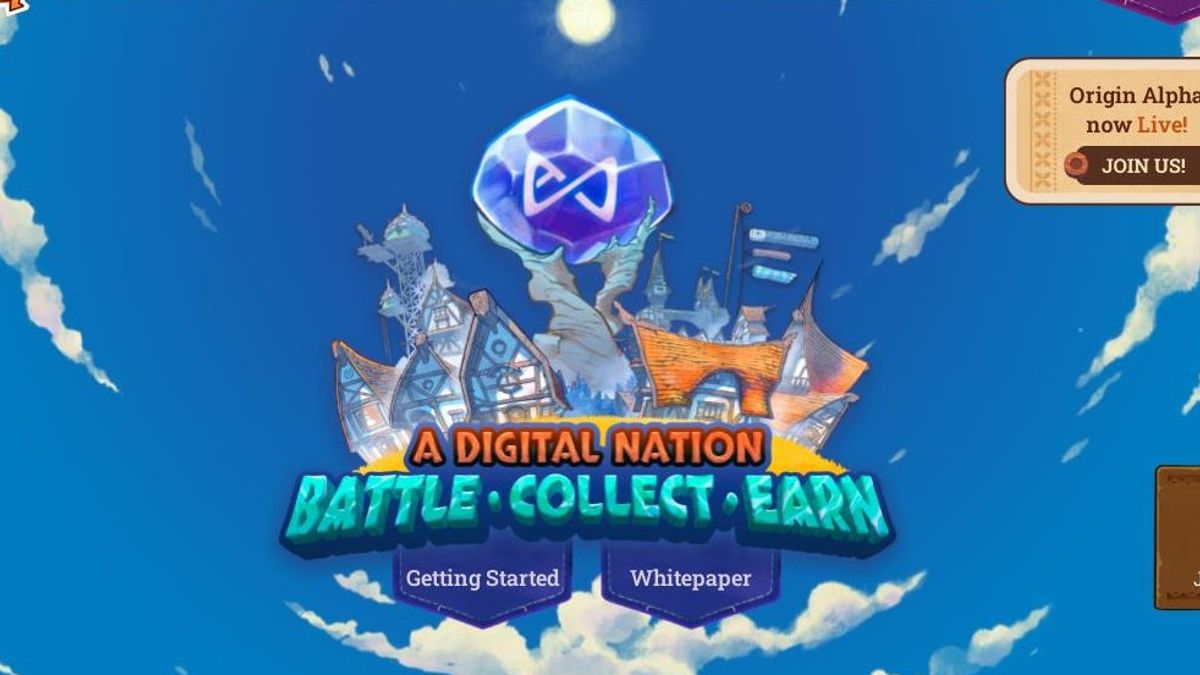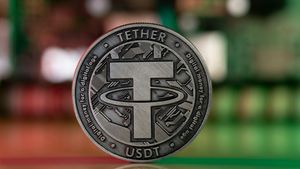JAKARTA - Axie infinity player from Bangkok, Jarindr Thitadilaka said he made as much as USD 2.000 or IDR 28 million a month last year from his digital pet collection.
This blockchain-based online game, dubbed "play-to-earn" combines entertainment with financial speculation. The game can generate profitable business amid the hype surrounding NFT and the virtual world.
The game also attracts millions of players plus billions of dollars from investors who see the game as a way to introduce more people to cryptocurrency.
In Axie Infinity, users purchase virtual blob-like creatures with various attributes as NFTs, or non-exchangeable tokens.
Players can then use their digital pets to earn money by winning battles and creating new animals whose value depends on the rarity of the animal.
Security threats became the focus of Axie Infinity when last week it was exposed to the theft of US $ 615 million (Rp 8.8 trillion). Sky Mavis co-founder Aleksander Larsen told Reuters he wanted to focus more on security when developing the game when it launched in 2018.
The biggest crypto hack ever highlighted the play-to-earn game, and became big business. According to market tracker DappRadar, players were willing to spend $4.9 billion on in-game NFTs last year.
In addition, investor interest in NFT-based games has also increased, with the project attracting USD 4 billion (IDR 56 trillion) in venture capital funding last year, up from USD 80.000 (IDR 1.1 billion) in 2020.
"There are so many users who want to interact with this technology," said Larsen, adding that Axie Infinity's revenue exceeded $1.3 billion last year. "Looks like you discovered a new continent, like discovering America again."
Become a Big Business
In July, Thitadilaka in Thailand decided to form what is known in gaming terms as a “fellowship” and earn more. They allow their NFT to be used by people who want to play Axie Infinity for free, and take a share of every win in return.
Thitadilaka says his guild, GuildFi, is growing into a network of 3.000 Axie Infinity players who share their earnings with asset owners 50:50. Thitadilaka now runs GuildFi as a full-time job and the company has raised $146 million from investors.
SEE ALSO:
Southeast Asian countries like Thailand and the Philippines have emerged as some of the hottest global gaming hubs.
Teriz Pia, who is 25 years old and lives in Manila, quit her job as a preschool teacher and founded a game union, the Real Deal Guild. For Axie Infinity, Pia let her players keep 70 percent, while she took a 30 percent cut.
In another play-to-earn game, Pegaxy, where players buy and trade NFT virtual horses to compete in a race to win crypto tokens, he splits it 60:40.
Vulnerable to Failure
Legal experts warn that investing in crypto assets is risky and vulnerable if the project fails or the asset market dries up.
"Keeping any value in a project like this is risky. In-game earnings to generate, blockchain-based games are often through rewards paid out in the project's native tokens," said David Lee, cryptocurrency fellow at London-based law firm Fladgate, citing Reuters.
Lee said there is no guarantee of the value of either the tokens or in-game assets as their value is often determined by supply and demand in the market. "There's definitely money to be made, but there's also money to be lost here," added Wilton of Pegaxy.
The English, Chinese, Japanese, Arabic, and French versions are automatically generated by the AI. So there may still be inaccuracies in translating, please always see Indonesian as our main language. (system supported by DigitalSiber.id)















